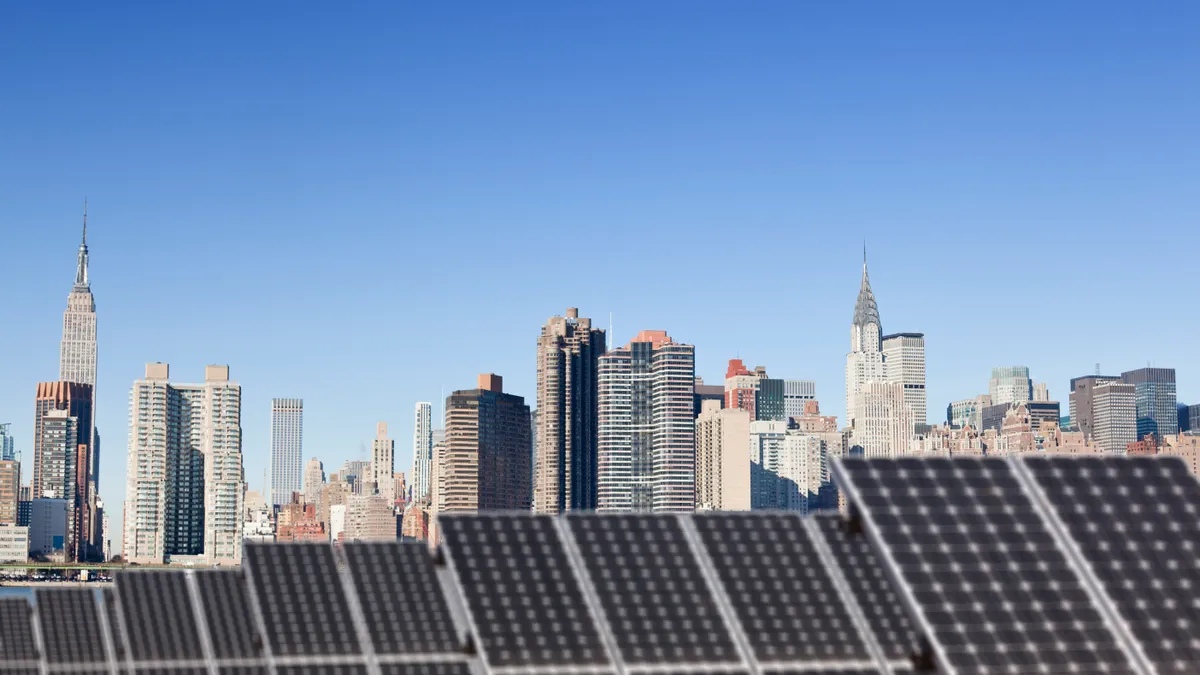Dive Brief:
- A group of approximately 60 large industrial, commercial and institutional electric customers in New York has asked state regulators to ensure a carbon pricing proposal being considered by the state's grid operator does not wind up double-charging for the same clean energy attributes.
- The group filed a petition with the Public Service Commission July 9, arguing several of New York's clean energy initiatives, such as the renewable energy credits program and the Value of Distributed Energy Resources tariff, already charge customers for the clean energy attributes of renewable energy.
- The New York Independent Systems Operator is considering a carbon pricing straw proposal — which the group of large consumers says could result in paying twice for the same energy attributes, when layered on top of other initiatives.
Dive Insight:
The complaint highlights the difficulty regulators face in managing a patchwork of energy policies and incentives.
"There exists a substantial risk of large, consumer-funded double-payments for the same attribute. In addition to harming consumers financially, such double-payments would further impair the competitiveness of the State’s
wholesale electricity markets," the group wrote in the petition.
The group argues that under the ISO straw proposal, wholesale energy prices "would be expected to rise to
reflect the effective carbon charge whenever a carbon-emitting facility sets the [locational-based marginal price]." But while more than half of the state's electric generation is free of carbon emissions, the group notes that "the marginal units in most hours in most locations in the State are fossil-fueled."
Those higher energy prices would be realized by all infra-marginal generation facilities, the group told regulators, including renewable facilities receiving compensation under several of New York's programs.
New York has aggressive carbon reduction goals, including a 40% reduction in greenhouse gas emissions by 2030, and 80% by 2050, compared to 1990.
In May, the New York Department of Environmental Conservation proposed limiting existing power plants to either 1,800 lbs of CO2/MWh of gross electrical output or 180 lbs of CO2/mmBTU of input. If implemented, it could help the state phase out coal-fired plants entirely by 2020.
A Brattle report last year concluded a $40/ton carbon charge would have a "relatively small" impact on New York customer costs.














